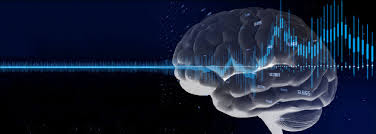The diagnosis of neurological conditions is primarily based on markers, such as the patient's clinical history
Biomarkers
are biological components that are used to measure biological states. A
biomarker is a naturally occurring gene, molecule, or characteristic that can
be used to identify a specific physiological or pathological process, disease,
or other condition. Neurological biomarkers are commonly used in the diagnosis
of a wide range of diseases, including Parkinson's disease, autism, multiple
sclerosis, and many others.
The development of newer and better neurological
biomarkers contributes to the expansion of the global market for
neurological biomarkers. Furthermore, the expansion of application,
technological advancements, and the rise in the incidence of neurological
disorders such as Alzheimer's and Parkinson's disease are major factors that
have positively impacted the global market for neurological biomarkers.
These biomarkers can also be used in
conjunction to determine an individual's disease state. Scientists are learning
more about the structural and functional differences that exist between
neurological diseases. Furthermore, there has been an increase in biobanks, which
have assisted in meeting unmet needs in oncology, neuroscience, and
cardiovascular disease.
These biomarkers are used to diagnose acute
ischemic stroke, intracerebral hemorrhage, subarachnoid hemorrhage, and
traumatic brain injury in patients. The patient's ability to mitigate such
neurocritical disease determines how well he or she recovers. Due to the
complexities involved, the acquisition of imaging studies or a thorough
examination may be delayed in such cases. This deficiency has fueled the demand
for biomarkers even more.
Neurological conditions are typically
diagnosed using markers such as the patient's clinical history, cognitive
testing, neurological examinations, and structural MRIs. However, there are
times when identifying a specific biomarker is required to understand the
condition's diagnosis. Biomarkers are also required for measuring and
evaluating a physiological or pathological indicator for a patient's
pharmacological response to a mode of treatment, serving as a critical
foundation for the development of personalized medicines.




Comments
Post a Comment